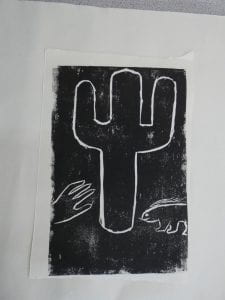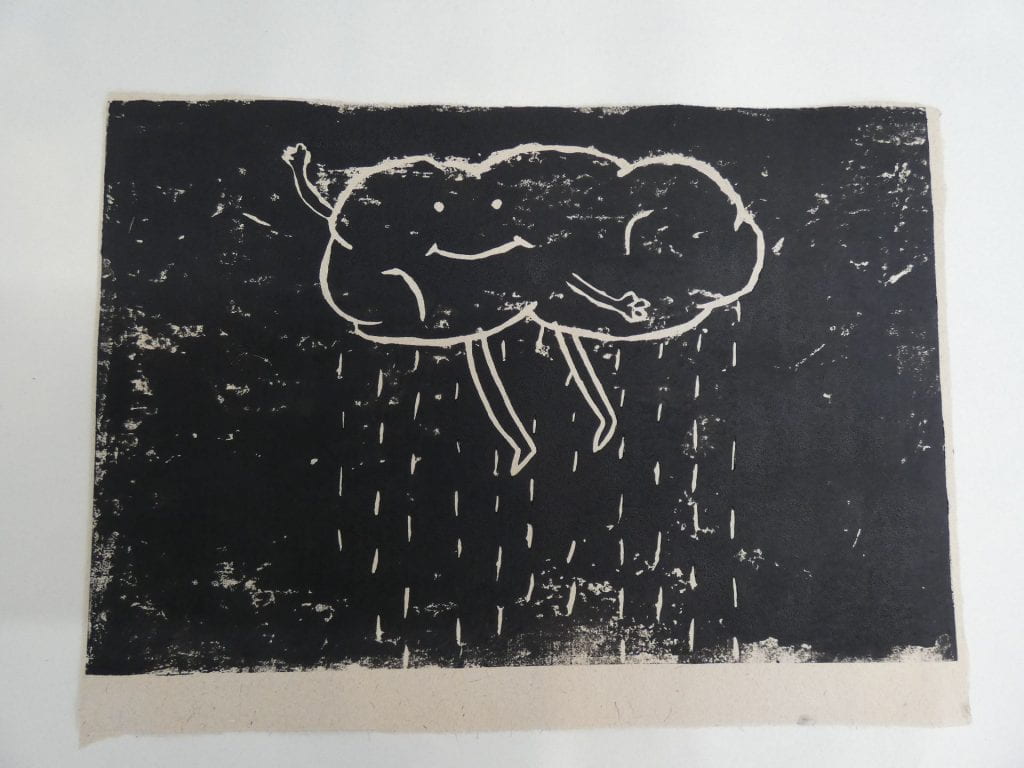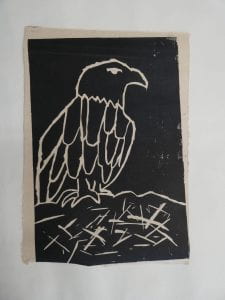Student Reflections – IOE’s BA Education Studies
By Vicky A Price, on 21 May 2024
The Outreach team in UCL Special Collections recently hosted two students from the IOE BA Education Studies course. Tasked with creating a pitch for a new after school club, Jiayi and Yunrui spent time getting to know the collections, learning about the Outreach programme and devising an original idea to present to staff at the end of their placement. It was a pleasure to host them, and we hope to implement their project ideas in the next academic year. This blog is written by Jiayi and Yunrui, and shares some of their reflections and learning at the end of their time with us.
Ella Zhang
After completing our Education Placement at UCL Special Collections, Yunrui and I are thrilled to reflect on the enriching experiences we had during our time here.
Throughout the placement, we developed a general understanding of UCL Special Collections. We had the privilege of engaging with key staff members, embarking on tours to Special Collection places on UCL Bloomsbury Campus. We were also introduced to key collection items and delved into stories behind them. Under the guidance of Daniel Dickins, we honed our skills in online collection search, catalogue navigation, and item viewing, equipping ourselves with invaluable tools for future studies.
We were introduced to the Outreach Programme in Special Collections under the supervision of Vicky Price, and the standout highlight in the placement for me was our participation in the after-school club Illustrate!, a part of the Outreach Programme at Special Collections. I visited Stratford School Academy, where I saw pupils enjoying perspective drawing in the workshop. Yunrui and I then visited UCL East with an authentic opportunity to observe collection items with pupils from Stratford School Academy. This firsthand experience in the after-school club, witnessing how children immersed themselves in the exploration of collection items, made me reflect on the learning process. As an education student, I was then led to the philosophical debate of the relationship between learning and fun – are the two elements separate or could they be mutual–facilitating? To me, real learning experiences are so closely intertwined with ‘fun’. The after-school club facilitated by Special Collections managed to achieve this – Illustrate! provides pupils with a well-balanced educational experience as it supports pupils’ learning with collection items while stimulating the intrinsic curiosity of pupils.
Inspired by our experiences, Yunrui and I seized the opportunity to design our own after-school club – Poetry Lab. Motivated by our fascination with the poetry store, we envisioned a space where Key Stage 3 pupils could discover poetry beyond its stereotypical image. This was inspired by Liz Lawes, when we were introduced to the small press collections. Through sessions focused on concrete, visual, object, and sound poetry, we wanted to encourage pupils to understand poetry as a way of creative expression. We also designed creative activities in each session. These activities would allow kids to construct different forms of poetry by themselves, aiming to help them develop a deeper appreciation of poetry and language. This experience gave us a real taste of programme development including collection use and resource preparation.
To sum up, Yunrui and I have both really enjoyed this placement in the lovely working environment in Special Collections. Our collaboration has been particularly rewarding, with our shared enthusiasm and teamwork spirit. Throughout our placement, we had the pleasure of meeting great people and developing new skills. We sincerely hope there will be future opportunities for us to work with Special Collections again!

The front cover of UCL Special Collections’ edition of Heinz Gappmayr – 5 Papierskulpturen (1962).

The sculptures assembled.
Yunrui Zhang
This term, as a part of Education Placement Module, my course mate Ella and I have been assigned to have a 50-hour placement with UCL Special Collections and worked with the outreach team on the after-school workshop. The placement started at late January and mostly finished at late March. Before this placement, I knew nothing about UCL Special Collections. Through this placement, I gained some relevant knowledge. This includes what archives, rare books and manuscripts are, how to quickly search items in Special Collection’s catalogue and how to use these items in after-school workshops in the Outreach programme.
Our final task was to design an after-school workshop for the outreach programme, using collection items from UCL Special Collections. This required us to have clear knowledge and become relatively familiar with some of the collections. Initially, I thought it would be quite challenging to familiarise ourselves with the collections and develop a suitable workshop topic within the 50-hour placement. However, the supportive environment at UCL Special Collections and the guidance we received, including weekly explorations of different collections, have made the process more manageable. One particularly memorable experience was our visit to the poetry store with Liz Lawes. We were fascinated by the diverse ways in which poetry can be presented. With Liz’s guidance, we deepened our understanding of different forms of poetry and ultimately decided on the topic of our after-school workshop: “the poetry lab”.
Beyond visiting and exploring various collections, we also had the opportunity to observe after-school workshops in person. These experiences taught us a lot about the ideal format for such workshops. Unlike traditional school classes, after-school workshops should integrate fun and interactive activities into the learning process to ensure an enjoyable experience.
These insights have also inspired the design of our own after-school workshop. We’ve structured it into 5 sessions, each focusing on a different form of poetry. This allows students to learn and understand the different forms of poetic expression during the workshop. We have designed different activities for each session to encourage active participation and deeper understanding. For example, one of our sessions is focusing on object poetry. The activity we designed for this session involves students making their own object poetry and sharing their thinking with the class. This hands-on approach can facilitate their understanding on how object works as a metaphor to help people better visualize and understand the poem.
In fact, my learning journey has already begun when I started learning about the Outreach programme. Over the two months of the placement, as I gradually deepened my understanding of the Outreach programme, I gained some new insights about the role of universities in society. I realized that universities could have profound impact beyond their traditional academic roles to foster a more interconnected and supportive society. UCL Special Collections can be a good example that extends the university’s reach beyond its immediate academic community by providing assistance and resources to schools and individuals, actively contributing to broader societal well-being.
Throughout the whole placement, I also learned a lot from my course mate Ella, including her outstanding communication skills and her ability to learn new things. It was a great pleasure to work with her on our after-school workshop proposal. At the same time, I am also very grateful to Vicky Price and Daniel Dickins and everyone else in UCL Special Collections for their help and support during the placement. This experience will be a treasure for my future, and I am very lucky to be able to spend these two months with UCL Special Collections.

Moschatel Press’ Pastoral Fragments, held at UCL Special Collections.
 Close
Close













